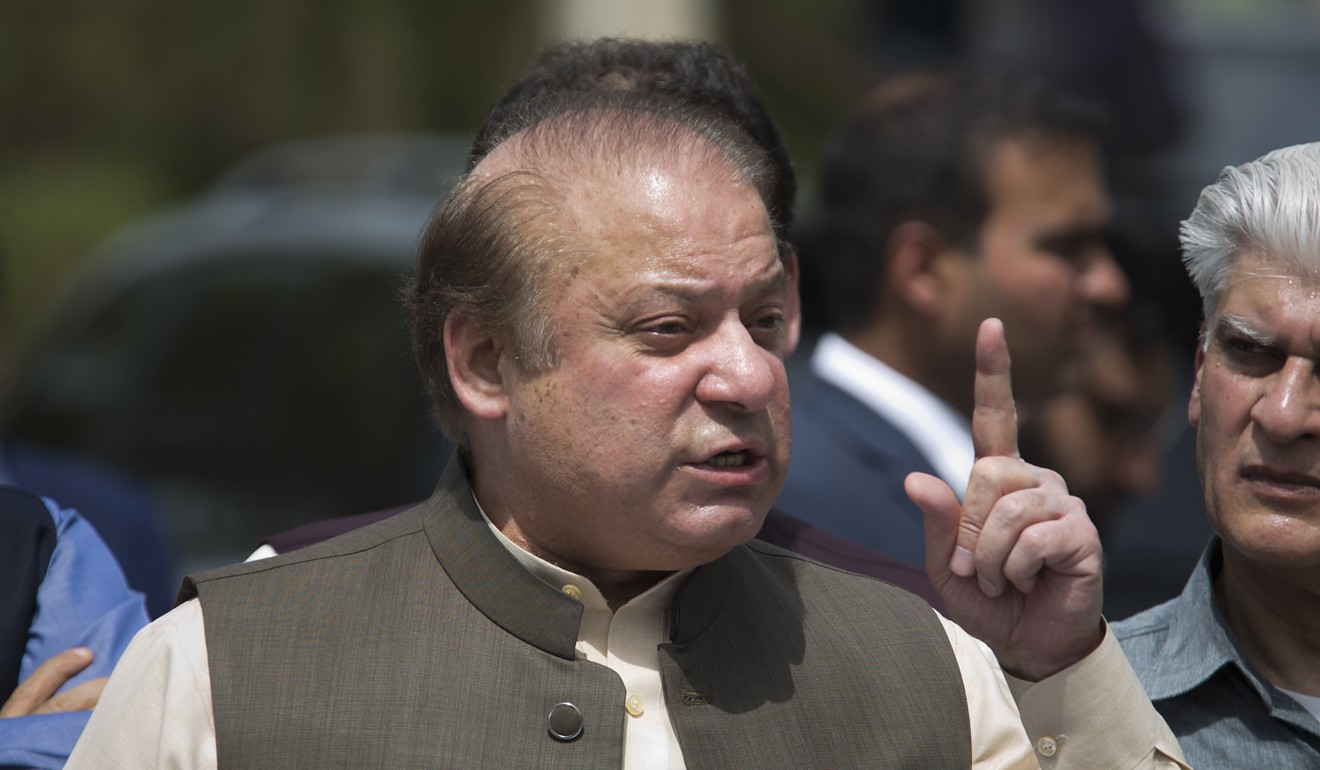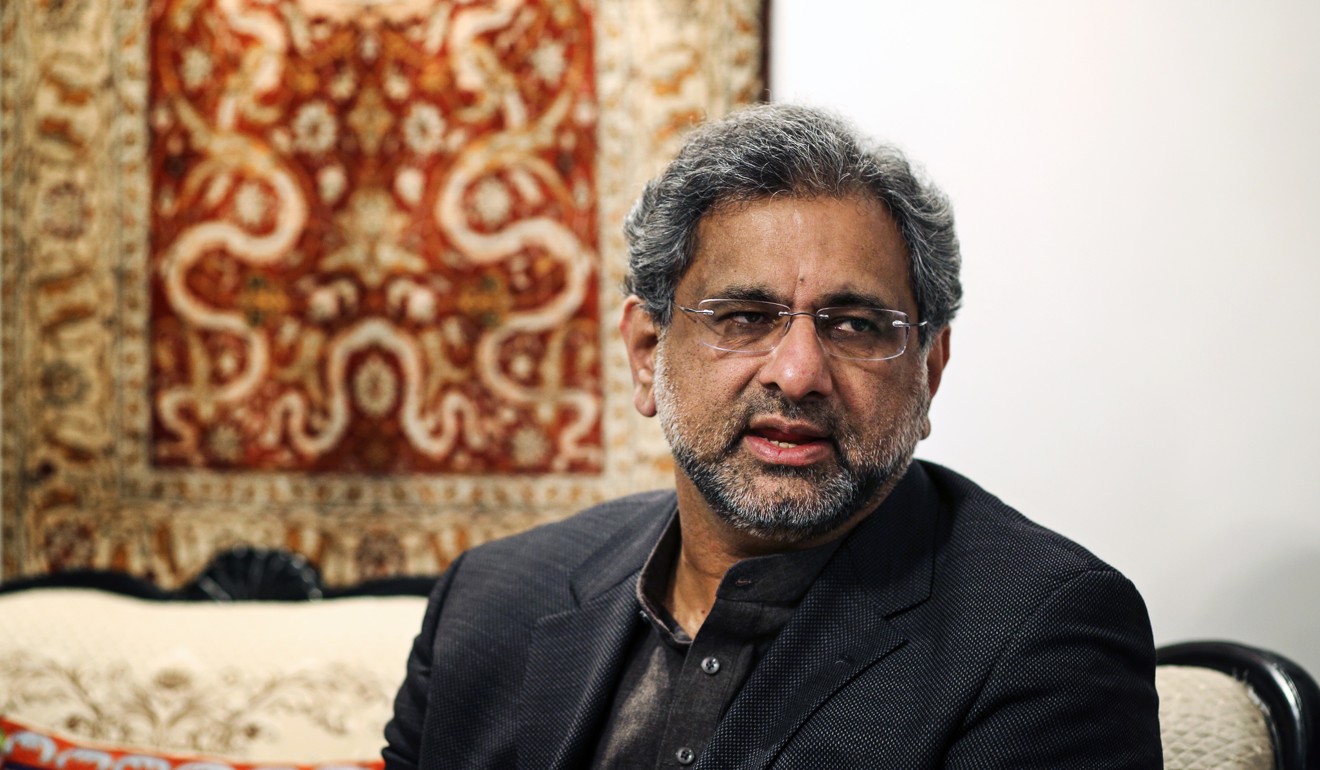
Pakistan PM says court ‘hinders democracy’ by banning deposed premier Nawaz Sharif from leading own party
Former prime minister, who was sacked by the Supreme Court last year, had managed to retain power by driving through a law that allowed disqualified politicians to lead political parties
Pakistan’s Prime Minister Shahid Khaqan Abbasi said a court order that barred former premier Nawaz Sharif from leading the ruling party and placed the timing of Senate elections into question hinders democracy and relieved past “dictatorial decisions”.
The Senate ballot will go ahead as scheduled on March 3 after the Supreme Court nullified decisions made by Sharif in his capacity as president of the Pakistan Muslim League-Nawaz, including candidate tickets in his name, Abbasi said after the hearing on Wednesday.
The Election Commission will decide whether to hold the upper-house ballot on time or delay them until it gets new nominations from the PML-N.
The ruling was the latest legal decision to go against Sharif. He was barred from office last July by the top court following a corruption probe into his family’s finances, but was then re-elected by his party as PML-N president in October.

Across Pakistan’s cities Sharif’s face dominates his party’s campaign posters, despite graft charges against him, which he has consistently denied.
“Such decisions never have strengthened democracy,” Abbasi, a Sharif loyalist who was picked by the ruling party as a replacement premier in August, said in Islamabad.
“The court has made a decision and we accept it. The masses themselves will respond to this verdict in the election or even before. The party has issued its stance that Nawaz Sharif is our leader.”
Abbasi’s comments on “dictatorial decisions” will resonate in a nation that has been ruled for almost half of its 70-year history by the military.
In an earlier interview this month, Abbasi conceded there had been tensions in the past year with the armed forces, which he said eased once Sharif was disqualified as prime minister.

Sharif is seen to have an acrimonious relationship with the army – he was previously removed from power in a 1999 coup and sent with some of his family into exile in Saudi Arabia.
Abbasi said he didn’t know when the PML-N would take a decision on a new party president.
Faisal Chaudhry, a lawyer for one of the 17 opposition party petitioners who sought Sharif’s removal as party head, said the court decision invalidated all of Sharif’s decisions since last July, including the candidates he nominated for the Senate election.
“My understanding is that the candidates can still contest but as independent and not as Nawaz Sharif’s party ticket holders,” Chaudhry said.
Additional reporting by Reuters

